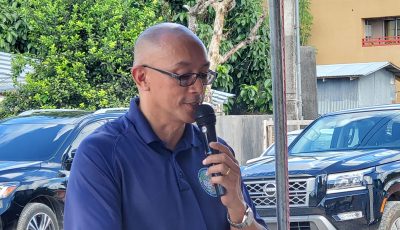Fostering partnership!
We look around for lasting answers, to which there’s none. You quiz what went wrong, to which there are tons. But what has contributed to the persistent fiscal and financial crisis at home?
It boils down to two major deficiencies: Lack of leadership and vision for over seven decades now. Appalling their scarcity at a very critical time in our developmental history, devoured by economic dystopia.
Embracing planning by eventualities exacerbates the condition. We ignore the more organized paradigm of thoughtful planning to rein in lasting investments. We prefer instant gratification. And so we struggle with persistent disconnection and apathy. We’ve failed to plan for our future!
Scaffolding this anomaly is a long history of government being the largest employer. It’s still the case today. Is government an industry here? We think we know government. Realistically we don’t, though this perception has metastasized—spread like malignant cancer—unaware that its operations come from taxes we pay.
And so we careen into persistent distractions of sort by conveniently avoiding doing what’s right. Confused, we even work up the courage to feel infantilized—feel like victimized toddlers—wondering why the huge cumulative deficit. We choose to ignore that the entire nine yards was self-inflicted. And we’re still in self-denial!
Then comes tons of federal entitlement headed by Kilili who thinks that freebies are the paradigms to helping families. This mindset speaks of the lack of vision so limited by “patch-up” jobs rather than lasting paradigms.
Alienation of private industries
Over the years, we’ve alienated private industries as though it’s an entirely different creature when in fact it is the most productive part of the local economy. This is further encouraged by our cargo cult mindset. The time to bring in private industries must be done forthwith. Such relationship must be constructive and inclusive.
This venture involves a process: “a series of actions or steps taken to achieve a particular end.” The same can be said about investing. You want to zero in on those that will generate the biggest profits with the least risk over a given period of time.
“To do it once or twice, you may get lucky. But to be successful for the long term, it means having a process in place,” according to Chris Versace, editor of PowerTrend magazine. But it takes both hands working together to get the job done decently.
“You don’t want to be a ‘one-and-done’ investor who continues to bask in the glow of one great trade. No, you want to be a serial investor who continues to get on base with, to use the baseball analogy, a number of singles and doubles.
“We won’t turn down the stand-up triple or even a home run, but at the heart of it we want to get on base as many times as possible without striking out. You have to refine your swing, and that means perfecting the process. It works for batting, and it works for investing.
“Successful, long-term investors have a similar process known as the postmortem trade analysis. If it was a profitable trade, what led to the investment in the first place? What data points and sources verified or reinforced the thesis behind the investment? If it was a trade that went south, what key pieces of information were missed? Did something in the industry or company change suddenly? If something did change, did you recognize the impact and how did you react? Why did you react that way?”
It should be understood that government isn’t in the business of turning in a profit at day’s end. It spends taxes we pay into the coffers sometime in wasteful fashion too. This habit lends to persistent fiscal collapse and we exit our air-conditioned offices smiling in grand self-denial, time and again. There’s the honed culture of “everything is government.” Get rid of this beast!
Savior: Christmas Drops
What has held our fragile community together? Other than the strength of communal sharing we also have seen what I’ve dubbed “Occasional Christmas Drops” to ease hardship among families.
There were war claims, land compensation, tax refunds, land leases and sale, among others. As the fun subsides, we see food stamps at sunrise, more tax refund, housing vouchers, and Medicaid. Imagine if these federal entitlement programs aren’t available here. We’d be selling coconuts and stolen bananas between Microl Corp. and Micro Beach.
Then casino washed up along the shore, though it turns into a carcass where political vultures have converged for suspect gainful disposition. Some are free of commitment while others are beholden to a certain firm. The debate now focuses on the promise of delivery without a hitch to which there’s a growing hitch. Problematic!
Each time the economy heads south we turn around and make humiliating speeches demonizing Uncle Sam, CWs, and other scapegoats. At day’s end we learned, a bit frustrated, that even scapegoats have gone on prolonged vacations and so we meet our own worse enemy: Us!
On every trip to misery land, many would instantly return to farming and a little fishing to meet family dietary needs. Yet traditional agrarian form of life has never been given serious thoughts or even realistic organization so it is worked into an integrated economic plan.
Farmers and fishermen are basically left to fend for themselves. Well, with glitz and glamour in the pupil of our elected elites’ visions, who wants to go back to farming and fishing, right? Yet we do it whenever the economy tanks. What’s the message here? Or was it the undersigned that missed this over the last six decades? Appalling!



























